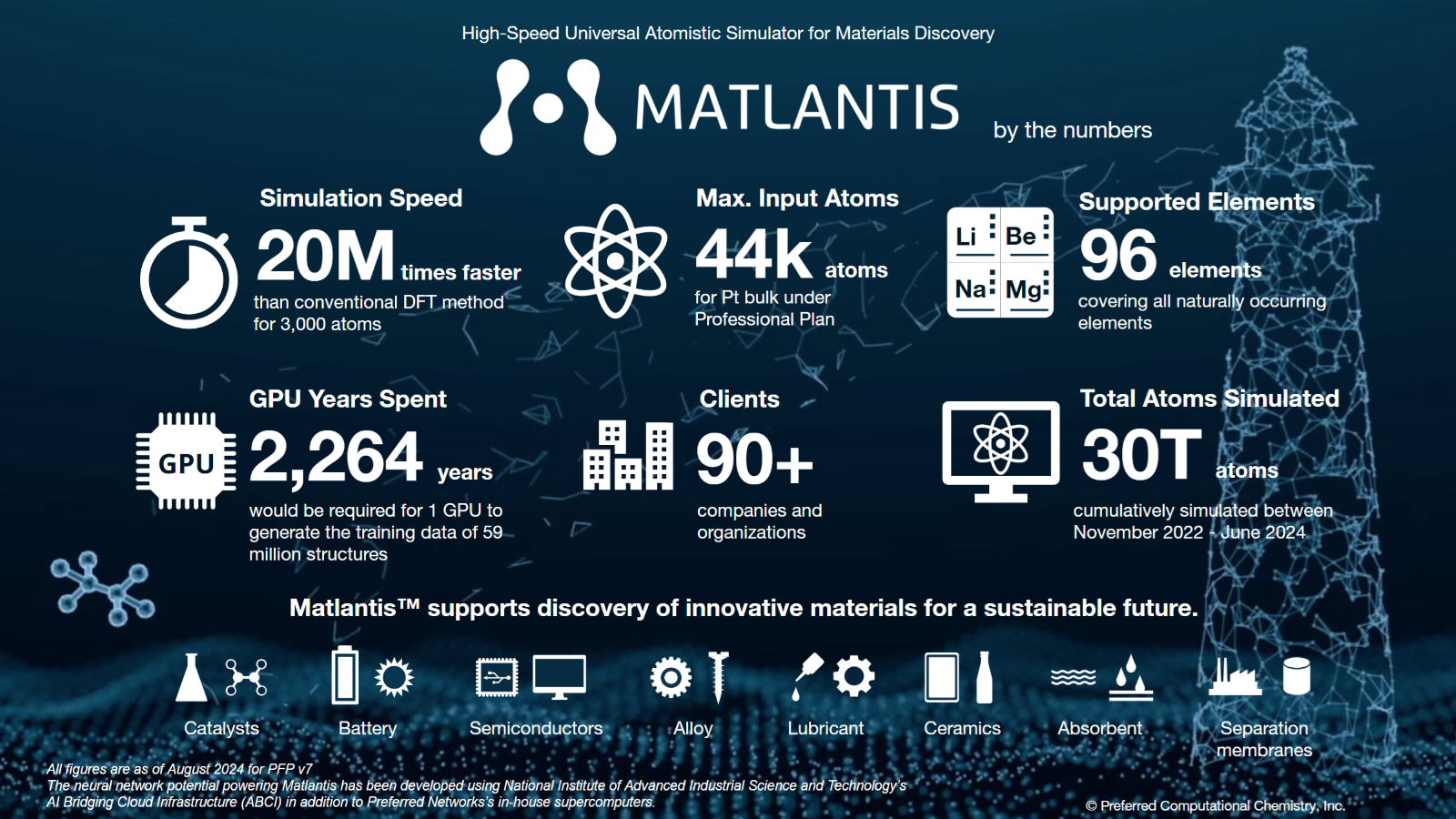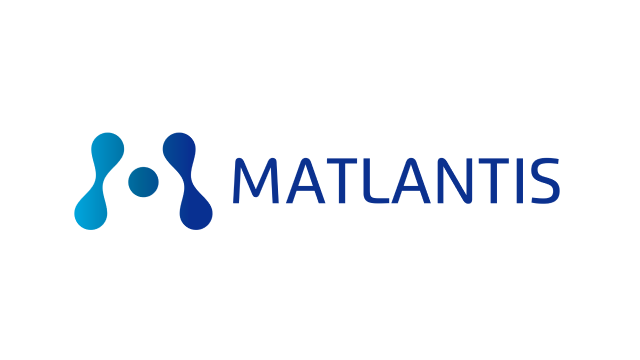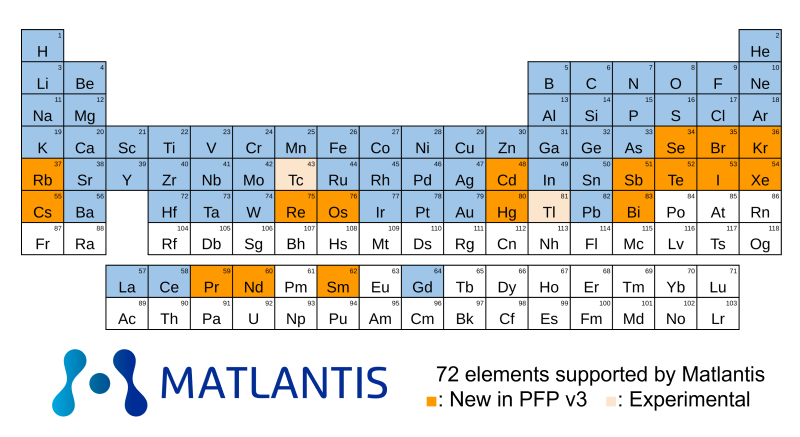News
PFN and ENEOS Release v7 of PFP Neural Network Potential for Universal Atomistic Simulator Matlantis
Simulation on Matlantis now supports all naturally occurring elements
2024.09.18
TOKYO – September 17, 2024 – Preferred Networks, Inc. (PFN) and ENEOS Corporation (ENEOS) have released the new version 7 of Preferred Potential (PFP)*1, the core technology powering the Matlantis™ universal atomistic simulator co-developed by the two companies. Matlantis, which previously supported 72 elements, now supports arbitrary combinations of 96 elements that include all naturally occurring elements *2.

Putting universality at the core of Matlantis to support a wide range of materials including undiscovered ones, PFN and ENEOS have successfully retained the simulation speed and accuracy while increasing the number of supported elements to 96. With PFP v7, Matlantis users can perform computer-based atomic-scale simulation of new materials such as e-fuel and purification catalysts, next-generation batteries, semiconductors and CO2 absorbents, with virtually no restrictions on elements. The newly supported elements include rare-earth elements used in highly heat-resistant magnets, medical laser and optical communication, as well as radioactive elements for removal and collection.
The training dataset for PFP v7 consists of 59 million molecules, crystals and other structures (5.9 times larger than v1 announced on July 6, 2021). The computing power that PFN has used to generate the training dataset so far is equivalent to what a single graphic processing unit (GPU) would need 2,264 years of computation time. PFP v7 also incorporates user feedback collected by Preferred Computational Chemistry (PFCC), the company jointly invested by PFN, ENEOS and Mitsubishi Corporation for the sales of Matlantis and consulting services. PFP v7 was developed using the National Institute of Advanced Industrial Science and Technology’s AI Bridging Cloud Infrastructure (ABCI) in addition to PFN’s in-house supercomputers.
PFN, ENEOS and PFCC will continue developing Matlantis and PFP to help companies discover innovative materials for a sustainable future.
*Note 1: PFP is the name of the unique neural network potential (NNP) that PFN and ENEOS co-developed for universal atomistic simulation for materials discovery using deep learning. An NNP expresses molecular dynamics using a neural network. Source: S. Takamoto, et al. Nat Commun 13, 2991 (2022). doi: 10.1038/s41467-022-30687-9
*Note 2: According to the CRC Handbook of Chemistry and Physics, 86th edition (2006), 91 elements – all elements of atomic numbers from 1 (hydrogen) to 92 (uranium) and plutonium-244 except technetium and promethium – are naturally present. PFP supports a total of 96 elements including technetium, promethium and 3 transuranium elements – neptunium, americium and curium – in addition to the 91 naturally-occurring elements.
About Matlantis
Jointly developed by PFN and ENEOS, Matlantis is a universal atomistic simulator that supports large-scale material discovery by reproducing new materials’ behavior at an atomic level on the computer. PFN and ENEOS have incorporated a deep learning model into a conventional physical simulator to increase the simulation speed by tens of thousands of times and to support a wide variety of materials. Matlantis was launched in July 2021 as a cloud-based software-as-a-service by Preferred Computational Chemistry, a company jointly invested by PFN, ENEOS and Mitsubishi Corporation. Matlantis has been used by over 90 companies and organizations as of August 2024 for discovering various materials including catalysts, batteries, semiconductors, alloys, lubricants, ceramics and chemicals. For more information, please visit: https://matlantis.com



